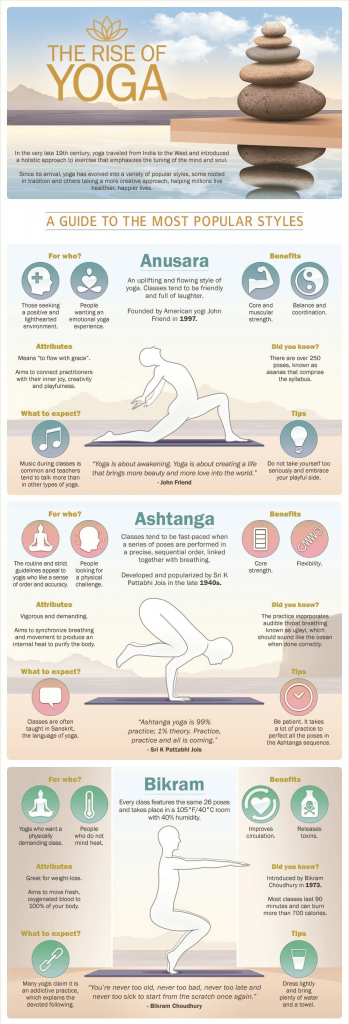Does this winter’s abrupt arrival have you feeling slightly less motivated to stay active already? Although many of you runner’s, cyclist’s, and other fitness enthusiasts continue through the winter, many will find themselves packing it in for the season and need to plan how to keep moving through the colder season. Yoga is a great compliment to any fitness routine at any time of the year as the benefits are so nourishing for both your body and your mind but practicing during the winter months specifically offers a couple of added benefits. If you are looking for some reasons to practice yoga this winter, follow along for our tips.
Many classes in the city are offered at temperatures from toasty to hot making yoga a comforting escape from the cold temperatures. Finding a space that feels like your oasis is extra incentive making it easier to brave the cold. Even if you prefer room temperature classes, be sure to find a space that makes stepping out of your comfort zone as comfortable as possible. Couches get at least 50 per cent cozier in the winter months so set yourself up for success by creating conditions that offer the least amount of resistance!
The cold temperatures naturally draw us into a retractive state. We contract and draw in, our shoulder’s scrunch up and this is usually met with a very hesitant breath. This reaction alone nuzzles us back into our cozy state. Instead of rolling out our mat and doing something that makes us feel good we curl up for the night. Often adding some comforting food to go with it. This is not to say that you should never curl up and get cozy by the fireplace, you just want to be sure that you are continuing to make your health a priority. If you’re not careful, you can begin to create a cycle of more resistance and you can find yourself in a slump that can be categorized as the winter blues.
Practicing yoga offers a wide range of physical, mental, and emotional benefits. Here are some reasons why people choose to practice yoga:
- Flexibility: Yoga involves a series of poses and stretches that can improve flexibility by increasing the range of motion in your joints.
- Strength Building: Many yoga poses require you to support your body weight in different ways, helping to build strength in various muscle groups.
- Stress Reduction: The combination of physical postures, controlled breathing, and meditation in yoga can help reduce stress and promote relaxation.
- Improved Posture: Yoga emphasizes proper alignment and body awareness, which can lead to better posture both during practice and in everyday life.
- Balance and Coordination: Yoga poses often involve balancing on one leg or holding challenging positions, which can enhance overall balance and coordination.
- Increased Energy: Regular yoga practice has been reported to boost energy levels and reduce feelings of fatigue.
- Mind-Body Connection: Yoga encourages a heightened awareness of the connection between your mind and body, fostering a sense of mindfulness and self-awareness.
- Pain Relief: Yoga can be effective in relieving various types of pain, including back pain, arthritis, and headaches.
- Improved Breathing: Pranayama, or yogic breathing exercises, are a key component of yoga and can help improve lung capacity, respiratory function, and overall breathing awareness.
- Enhanced Circulation: The combination of movement and breath in yoga helps improve blood circulation, promoting better oxygenation of tissues and organs.
- Better Sleep: Regular yoga practice has been associated with improved sleep quality and can be beneficial for those dealing with insomnia or sleep-related issues.
- Emotional Well-Being: Yoga can contribute to emotional balance and well-being by reducing symptoms of anxiety and depression and promoting a positive outlook on life.
- Community and Social Connection: Joining a yoga class provides an opportunity to connect with like-minded individuals, fostering a sense of community and support.
- Weight Management: While not as intense as some forms of exercise, yoga can contribute to weight management by promoting mindful eating and overall well-being.
- Self-Care: Yoga provides a dedicated time for self-care, allowing individuals to prioritize their physical and mental health.
- Adaptability: Yoga is versatile and can be adapted to various fitness levels and physical conditions, making it accessible to a wide range of people.
Remember that individual experiences with yoga may vary, and it’s essential to choose a style of yoga and level of intensity that suits your personal preferences and physical condition.
The more you practice yoga the more acquainted you become to meeting states of restricted breath. Sometimes the restriction is physical and results from tension or tightness in the body. Sometime the restriction is from an overactive mind struggling to stay present. Either way, in yoga we meet it breath. Developing the ability to stay with your breath immediately opens you up to a space of expansion instead of contraction. The effects can start small and you simply start meeting the cold air with breath. With more practice it gets better and you may start to find yourself breathing more through the inevitable frustrations of life. This alone can change your life but there are great physical benefits that come along with this too.

Being consistent with your yoga practice over the winter months will allow you to experience the physical benefits of increased flexibility and a stronger, more stable body. Not only will this significantly reduce your risk for injury, but it will keep you moving in a much more optimal and efficient state. This way you can progress both quicker and safer within a short time frame. The best part is with less tension in your body, you are left with less aches and strains; combine this with progress and it might as well be a recipe for happiness. Whether you are looking forward to golf or football, if you practice yoga to pass by the time until you can get back outside, it will make for a much easier and enjoyable transition!
By Meg Stevenson – Navina Yoga








